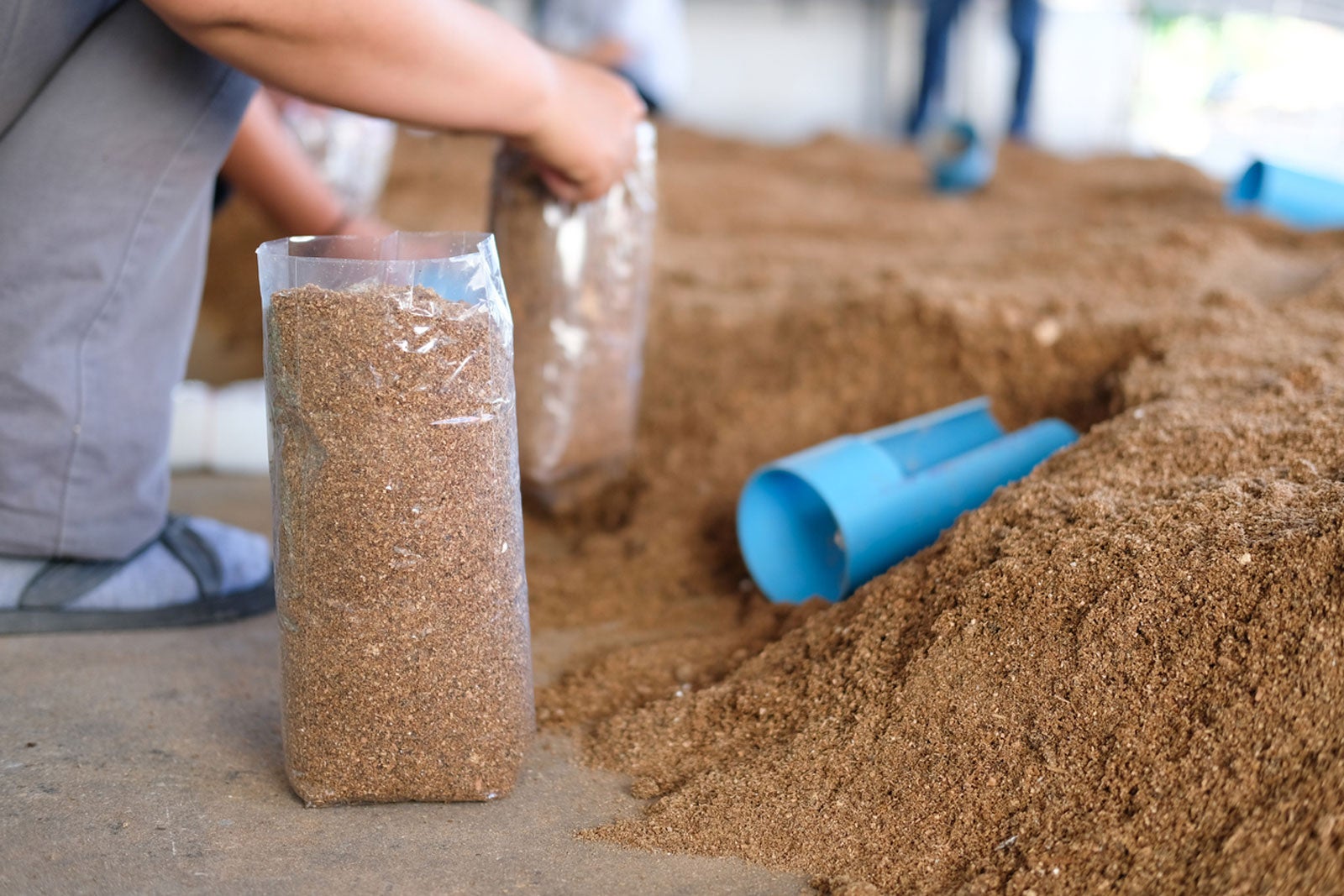Mushroom Compost Benefits: Organic Gardening With Mushroom Compost


Mushroom compost makes a great addition to the garden soil. Organic gardening with mushroom compost can be accomplished in several ways and offers many benefits to the garden.
What is Mushroom Compost?
Mushroom compost is a type of slow-release, organic plant fertilizer. The compost is made by mushroom growers using organic materials such as hay, straw, corn cobs, and hulls, and poultry or horse manure. Since the mushroom growing process varies slightly between individual growers, mushroom compost recipes may differ here and there. For instance, additional materials like gypsum, peat moss, lime, soybean meal, and various other organic items may be added to the compost as well. First the compost is steam pasteurized to kill weed seeds and any other harmful agents. Then the mushroom spawn are incorporated, and a mixed layer of sphagnum moss and lime is top-dressed onto the top of the pile for the growth of mushrooms. Mushroom composting takes about three to four weeks to process, during which it is monitored closely by mushroom growers to maintain adequate temperatures. After the process is complete, the leftover compost is disposed of and sold as fertilizer.
Mushroom Compost for Gardening
Mushroom compost is generally sold in bags labeled as SMC or SMS (spent mushroom compost or spent mushroom substrate). It is available at many garden centers or through landscape supply companies. Mushroom compost is also available for purchase by the truckload or bushel, depending on its use in the garden. There are several uses for mushroom compost. It can be used as a soil amendment for lawns, gardens, and container plants. However, this product should be used with caution due to its high soluble salt levels. These salt levels can kill germinating seeds, harm young seedlings, and cause damage to salt-sensitive plants, like azaleas and rhododendrons.
Mushroom Compost Benefits
The beneficial uses of mushroom compost, however, far outweigh the downside of high salt levels. This type of compost is reasonably inexpensive. It enriches the soil and supplies nutrients for the healthy growth of plants. Mushroom compost also increases the water-holding capacity of the soil, which decreases your watering needs. Mushroom compost is suitable for most garden plants. It supports various types of plant growth, from fruits and vegetables, to herbs and flowers. To get the greatest results when organic gardening with mushroom compost, thoroughly mix it in with the garden soil prior to planting or allow it to sit over winter and apply in spring.
Sign up for the Gardening Know How newsletter today and receive a free copy of our e-book "How to Grow Delicious Tomatoes".

Nikki Tilley has been gardening for nearly three decades. The former Senior Editor and Archivist of Gardening Know How, Nikki has also authored six gardening books.